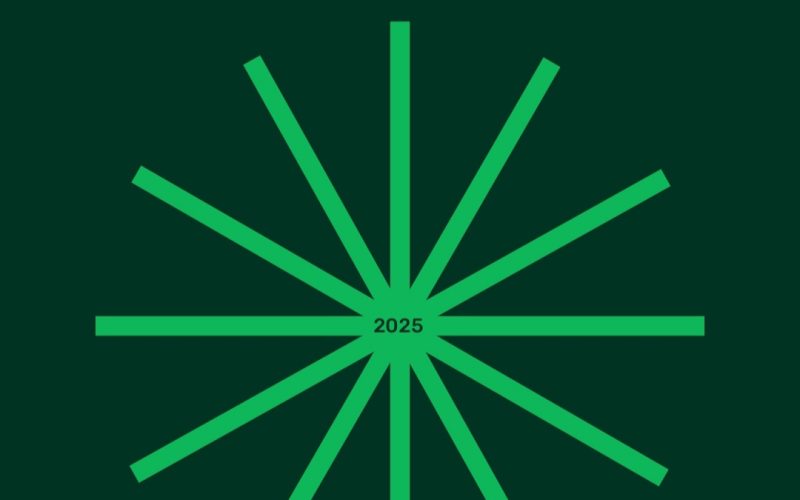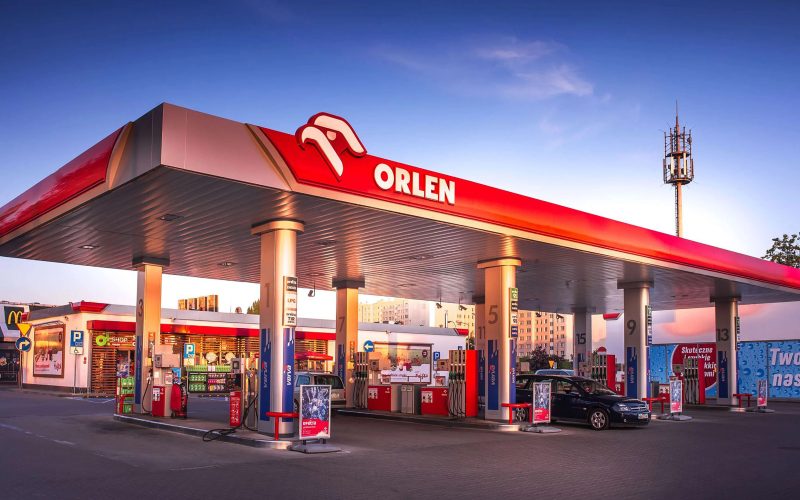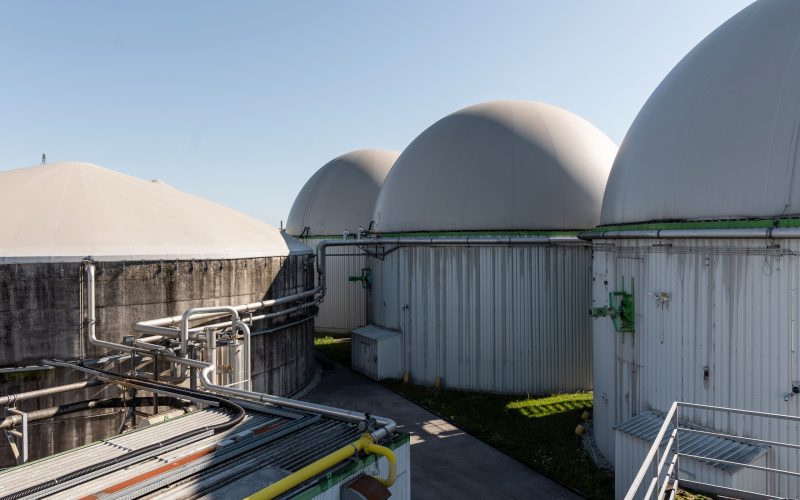CBAM: What should Ukrainian exporters prepare for?
Starting next year, the Carbon Border Adjustment Mechanism (CBAM) will be fully implemented, and importers in the EU will be subject to financial obligations to pay for greenhouse gas emissions included in certain goods produced outside the EU.
In a joint article for the publication Economichna Pravda, UABIO Chairman Georgii Geletukha, together with Association experts Semen Drahniev and Tetiana Zheliezna, examined the approaches and key innovations of the CBAM in the current period, as well as possible ways to prepare Ukrainian producers for these changes in order to minimize potential negative consequences.
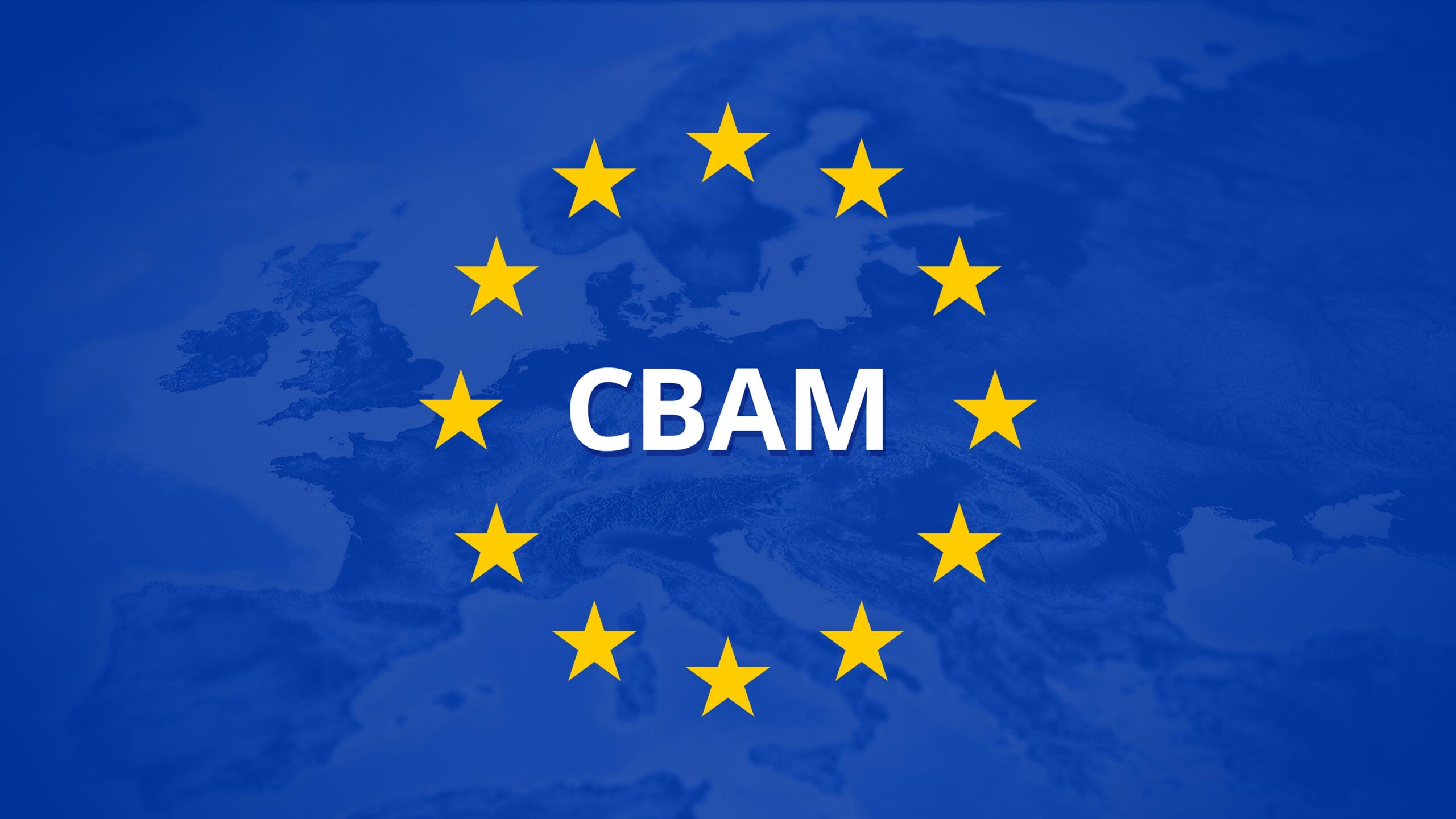
About CBAM
The Carbon Border Adjustment Mechanism is an EU environmental policy tool to combat climate change and achieve climate neutrality by 2050.
The aim of CBAM is to prevent “carbon leakage”, where companies relocate production to countries with less stringent environmental standards, and to ensure a level playing field between goods produced in the EU and imported goods from third countries.
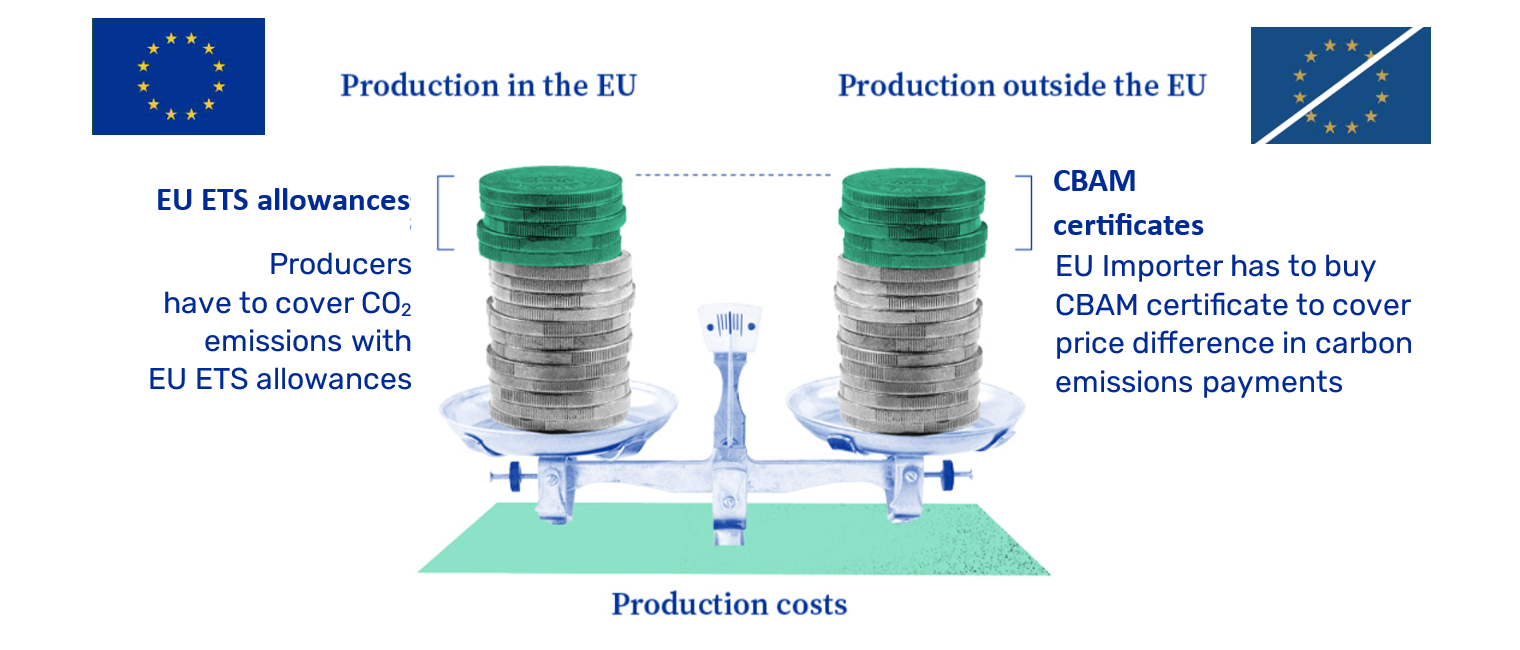
Main categories of goods covered by CBAM
- Iron and steel (including products such as pipes, wire, tanks, cisterns, screws, bolts, nuts, screws);
- Cement;
- Fertilizers (nitrogen fertilizers);
- Aluminum (including various aluminum products);
- Electricity;
- Hydrogen.
The reporting requirements for importers into the EU on embedded emissions of goods covered by CBAM take into account direct and indirect greenhouse gas emissions from the production process:
- carbon dioxide (CO2);
- nitrous oxide (for some fertilizers);
- perfluorocarbon compounds (for some aluminum products);
The report must also provide information on included emissions of precursors — certain types of input raw materials for which it is necessary to additionally take into account emissions that occurred earlier (during production itself).
CBAM permanent period
The permanent CBAM period will begin on January 1, 2026. At the same time, free CBAM emission allowances will be in effect from 2026 to 2034. They will gradually decrease in parallel with the withdrawal of free allowances in the EU ETS system. That is why the volume of included emissions for which CBAM certificates will need to be purchased will gradually increase to 100% in 2034.
It should also be noted that the EU is considering an Omnibus package of proposals that offers simplification for small importers of CBAM goods by introducing a new minimum threshold of 50 tons. Under the new rules, companies that import less than 50 tons of CBAM goods per year will be exempt from CBAM reporting and payments. This approach will keep about 99% of emissions within the CBAM, exempting about 90% of importers from reporting.
Starting in 2027, EU importers will have to buy CBAM certificates to pay for the included emissions of imported goods covered by CBAM. Specifically, in 2027, this will be payment for emissions in 2026. The price of a CBAM certificate will be directly linked to the market price of allowances in the European Emissions Trading System.
Important steps for Ukraine
Ukrainian manufacturers and exporters of goods covered by the CBAM have already faced demands from EU importers to provide information on embedded emissions. So far, this reporting has been done without mandatory verification. However, with the start of the permanent CBAM period, confirmation of the accuracy of the factual data provided will become a mandatory requirement.
For Ukraine, it is essential to:
- it is necessary to establish as soon as possible a process for monitoring emissions, collecting data, and calculating specific embedded emissions in accordance with the CBAM methodology. This is particularly relevant for cheap goods with high specific embedded emissions.
- it is important to introduce an emissions trading system that will ensure price parity with the EU ETS and allow the funds paid for emissions to remain in the country.
Even if the introduction of financial obligations under the ETS for Ukrainian exporters is delayed due to the war, we believe that this will not change the need to implement decarbonization measures and will only be a temporary reprieve.
By choosing a political course towards EU accession, Ukraine is taking on corresponding commitments in climate policy, and CBAM is a market mechanism for preparing for such climate policy.
Read more about this on the Economichna Pravda website (in Ukrainian).
